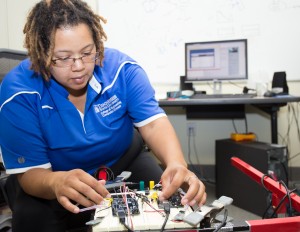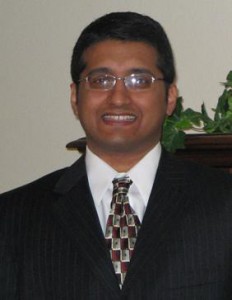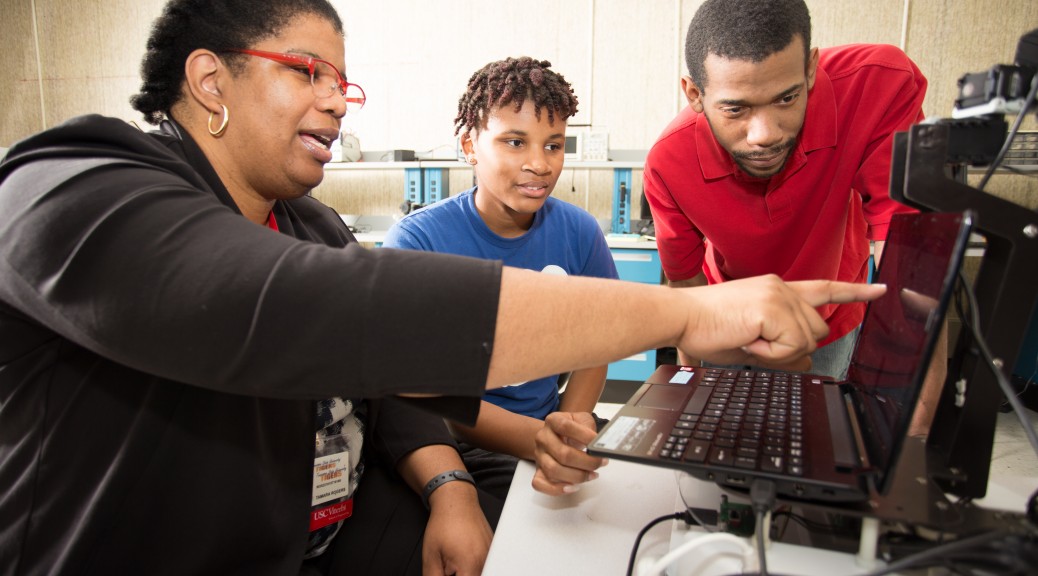
NASHVILLE, Tenn. (TSU News Service) – Engineering and computer science students at Tennessee State University may soon be able to design and build products such as hand-held computer games, mobile robots, computer apps and small machines, thanks to a new funding from the National Science Foundation.
A $1.7 million, four-year grant intended to revamp the curriculum and increase the graduation rate of African-American males in engineering, will also include the creation of an “engineering clinic,” which will allow students to design and build products related to their discipline.

“We are developing an innovative way of learning that would enhance students’ persistence and better prepare them for the rigors of the engineering coursework,” said Dr. S. Keith Hargrove, dean of the College of Engineering and principal investigator of the NSF funding.
According to Hargrove there is a demand to produce a more diverse workforce by developing curriculums that reflect theoretical and practical knowledge and allow graduates to immediately make a contribution to industry. But incoming freshmen are less prepared for the rigors of the engineering curriculum in such areas as math. Only 5.5 percent of black eighth-graders completed calculus five years later, and a mere 1.1 percent of the nation’s black college freshmen enrolled in engineering programs in 2010, an analysis by the National Association of Black Engineers shows.
With the new funding, Tennessee State University, the largest producer of African American engineers in the state, is responding to this workforce demand, Hargrove said.

“We have developed a pre-engineering sequence of courses for freshmen that students must take before embarking on the traditional four-year curriculum,” he said. “These courses are infused with hands-on design projects to motivate and inform students about the discipline, and promote team dynamics and engineering fundamentals.”
Freshman Mechanical Engineering major Isaiah Pirtle, a beneficiary of the pre-engineering program, has seen great progress in his performance.
“I was fortunate to participate in the ‘Engineering Concepts Institute,’ a summer pre-college program,” Pirtle said. “That experience gave me an excellent academic background for the mathematics required in my major.”
According to Hargrove, with that preparation, Pirtle and his fellow classmates’ program for the next five years will focus on more design-related projects with the development of the engineering clinic.
Dr. Sachin Shetty, associate professor of Electrical and Computer Engineering and Co-PI of the NFS fund, will manage the project and the development of the clinic. The project will also support a retention study on the attrition of African-American students, with particular emphasis on black males. Faculty from the Department of Sociology Department and College of Education will coordinate the study.
Department of Media Relations
Tennessee State University
3500 John Merritt Boulevard
Nashville, Tennessee 37209
615.963.5331
About Tennessee State University
With more than 9,000 students, Tennessee State University is Nashville’s only public university, and is a comprehensive, urban, co-educational, land-grant university offering 38 undergraduate, 22 graduate and seven doctoral programs. TSU has earned a top 20 ranking for Historically Black Colleges and Universities according to U.S. News and World Report, and rated as one of the top universities in the country by Washington Monthly for social mobility, research and community service. Founded in 1912, Tennessee State University celebrated 100 years in Nashville during 2012. Visit the University online at tnstate.edu.
